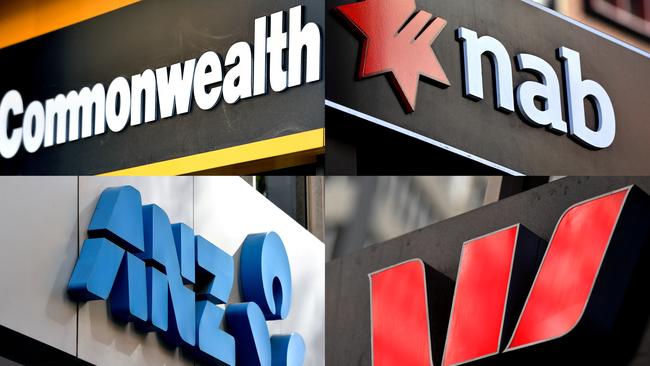Banking Code Compliance Committee in push to name and shame offending banks
A review of the banking industry’s self-appointed watchdog says it should be allowed to regularly name and shame lenders in a bid to drive greater compliance.

A review of the banking industry’s self-appointed watchdog says it should be allowed to regularly name and shame lenders in a bid to drive greater compliance and better consumer outcomes.
But the Banking Code Compliance Committee, which is tasked with ensuring adherence to the Banking Code of Practice, will still have no means of hitting offending banks with financial penalties after the report stopped short of calling for such a move.
The final report, to be released on Monday, puts forward 19 recommendations, including naming and shaming lenders that report breaches in their twice-yearly compliance statements.
If implemented, this will mark a major change for the committee, which has to date only twice named a bank for serious and systemic breaches of the code.
“Organisation-identified reporting is the ‘new normal’ for regulatory and quasi-regulatory reporting in the credit/financial services sector,” the report said.
“It is consistent with the BCCC’s transparency provision and would enhance bank accountability, and to be frank, to avoid this for the code may well stand out as somewhat coy.”
The recommendation says the committee should transition to public reporting about bank compliance statements on a named basis beginning July 2023, “providing both banks and the BCCC with a full cycle of reporting before then to iron out problems”.
It goes against calls by the Australian Banking Association, the sector’s lobby group, which in its submission warned publishing data identifying banks may be “inequitable and confusing”.
“We recognise that there is some risk that an unfair perception might be created from time to time, but to persist with anonymity could also be seen as unfairly hiding poor performance from time to time and does little to strengthen banks’ reputations,” the report said. “On balance, we think that the advantages of the greater transparency would be worthwhile.”
Since its establishment in 2019, the committee has just twice named a bank for serious and systemic breaches of the code:
In September 2020, Bendigo and Adelaide Bank was slapped for breaches within its Great Southern Loans business unit between 2015 and 2019 relating to debt collection practices and treatment of customers in financial difficulty. In May, it named ME Bank for serious and systemic breaches of the code over a home loan redraw blunder at the height of the COVID-19 crisis.
The independent review was announced in August and conducted by consultant Phil Khoury, who has previously reviewed the banking code. A further recommendation in the latest report calls for the committee to have the power to force a bank to admit on its own website that it has been named and shamed as well as provide any details about any breaches and its corrective action.
The recommendations also call for the watchdog to speed up its reporting on banks’ compliance statements. “To achieve credibility, the BCCC reporting should be complete within 90 to 100 days of the close of the banks’ reporting deadline,” it said.
To do this, the report noted, the watchdog would need to beef up by bringing on further resources.
“All stakeholders would like the BCCC to provide more timely reports at the conclusion of pieces of work. To achieve this, we think some shift in emphasis, improved sophistication and some increase in resourcing will be required.”
The committee should have the power to require a bank to undertake a compliance review of any rectification action to address a breach, and its power to report noncompliance to ASIC should not be limited to situations where it was ongoing, the report said.
But the report stopped short of recommending the committee be allowed to impose financial sanctions: “There is the issue of whether the BCCC should have the ability to sanction a bank by requiring it to make a community payment of up to $100,000,” it said.
“Here we understand that the code reviewer (Mike Callaghan) is not supportive of this and that he sees the imposition of fines as a blurring of the role of a self-regulatory organisation. This is consistent with our view at the time of our last review.”
Alongside the committee review, the banking code of practice has just been independently reviewed by Mr Callaghan, with that review’s final report released earlier in December.







To join the conversation, please log in. Don't have an account? Register
Join the conversation, you are commenting as Logout